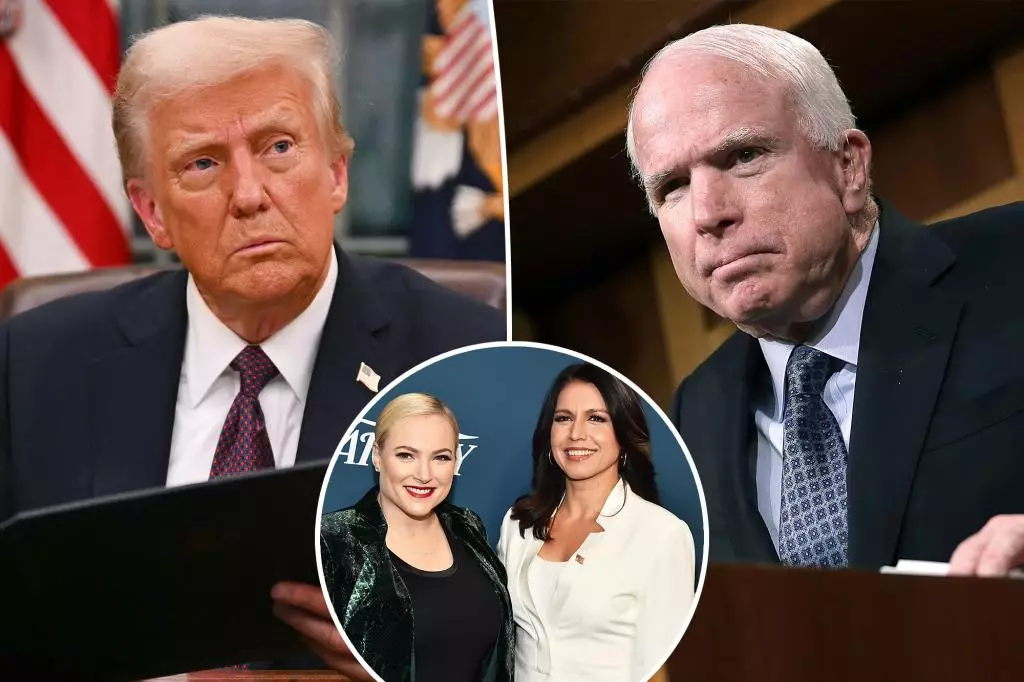The public rivalry between Donald Trump and the late Senator John McCain is emblematic of a broader rift in American politics that gained traction during Trump’s 2016 presidential campaign. It began infamously when Trump dismissively remarked, “I like people who weren’t captured,” in reference to McCain’s time as a prisoner of war in Vietnam. This statement was not merely an insult; it symbolized a deep-seated animosity that would shape their interactions for years to come. Following McCain’s passing in 2018, tensions reached new heights as Trump was notably excluded from the senator’s funeral. Such exclusions in the realm of politics often carry significant weight, serving as a public repudiation of past relations.
Following McCain’s death, the animosity did not ebb but rather intensified. Both his daughter, Meghan McCain, and widow, Cindy McCain, expressed their disdain for Trump, openly calling him out for his insults and behavior. Meghan’s fiery commentary included labeling Trump a “piece of sh*t,” which underscored the emotional damage rendered by years of political rivalry. The bitterness laid bare the challenges of political discourse in an era marked by division and vitriol, where personal grievances often overshadowed policy discussions. Moreover, McCain’s dramatic “thumbs down” vote against Trump’s efforts to repeal the Affordable Care Act added an element of political maneuvering to an already complex relationship. It was a moment that resonated with many and further solidified McCain’s status as a foil to Trump’s administration.
Despite their tumultuous history, recent reports indicate that a thaw has occurred in the relationship between the Trump camp and the McCain family. The unexpected catalyst appears to be Tulsi Gabbard, who was nominated by Trump for a key intelligence position. Gabbard’s close friendship with Meghan McCain, stemming from their time in the political arena, played a pivotal role in bridging this lengthy divide. Meghan actively lobbied for Gabbard’s confirmation, reaching out to senators and appearing on prominent media platforms to rally support. This type of grassroots political engagement is vital, showcasing the potential for individuals to transcend party lines in pursuit of common goals.
The repercussions of Meghan’s efforts did not go unrecognized. Reports from inside the White House suggest that Trump’s administration appreciated her involvement, indicating a newfound respect for the McCain family’s political engagement. The symbolic nature of Meghan and her husband, Ben Domenech, being invited to Gabbard’s swearing-in ceremony in the Oval Office marks a notable shift, potentially heralding a new era of cooperation. Even more surprising was an acknowledgment from Trump himself, a personal note of gratitude dispatched through an aide, suggesting the acknowledgment of past grievances, if not a complete reconciliation.
As the political landscape continues to evolve, the saga of Trump and the McCain family serves as a poignant reminder of the complexities inherent in political relationships. While the history between these figures remains laden with confrontational moments, the recent developments indicate the possibility of healing and collaboration. It demonstrates that politics, for all its antagonism, can still be navigated with civility—in part through the efforts of dedicated individuals willing to build bridges.

